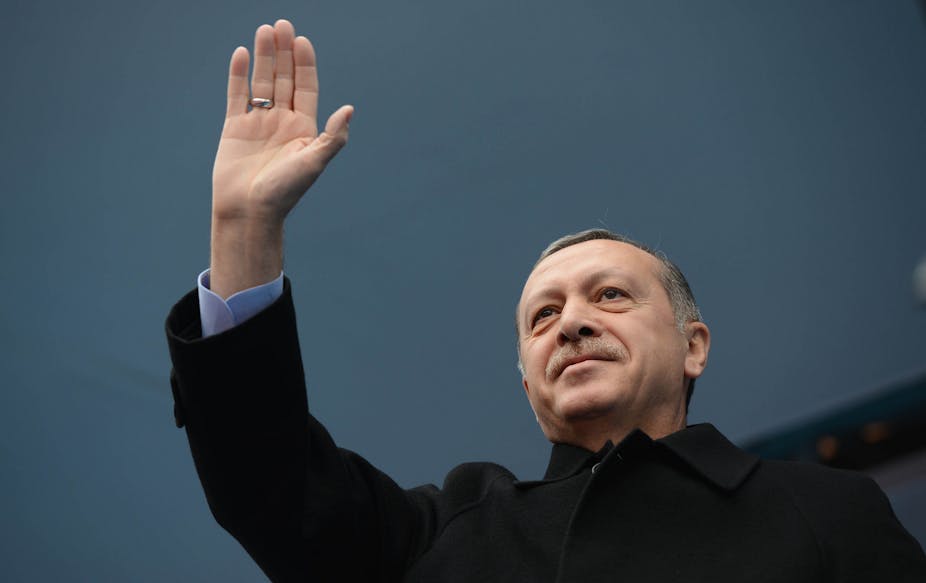June 24, 2018 instead of late 2019: that’s the date decided for Turkey’s “snap presidential and parliamentary elections”, called by Recep Tayyip Erdoğan’s political partner from Nationalist Movement Party (MHP), Devlet Bahçeli. The elections are needed by the incumbent president, who wants to maintain his position and stay in power.
AKP’s weaknesses
Erdoğan has to deal with several issues that have recently weakened his party and leadership both domestically and abroad. Turkey’s military intervention in Syria has become a cul-de-sac, with neither a withdrawal nor victory on the horizon. The economy, formerly a winning card for the AKP, has unexpectedly weakened and started to turn into the party’s Achilles’ heel – the Turkish lira has dramatically lost value, reducing the purchasing power for the masses.
Finally, the eroding credibility of the judicial system has become a target for complaints even from Erdoğan’s supporters. A recent poll shows that 97% of Turkish citizens lack trust in judiciary.
Less-than-ideal conditions
For the first time since Erdoğan’s rise to power 16 years ago, these elections might actually be politically meaningful. However, the crucial fact is that they’re being held under the state of emergency, which inevitably indicates less-than-ideal conditions for free and fair elections.
Turkey has recently been downgraded into the “not free” category in many international indexes, including that of Freedom House. Opposition campaigns are decapitated as the government tightens its grip on media, leading to the country’s rating for press freedom being downgraded to the 157th place on a list of 180 nations.

Opposition united
Erdoğan, with all his charisma and utilisation of state resources, has hobbled his opponents and enjoyed being the only real candidate for the last 16 years. Yet opposition parties seem revitalised by the call for early elections and are presenting candidates to challenge the Turkish leader.
The unexpected transfer of 15 MPs from Republican People’s Party (CHP) to Good Party (İyi Parti) has reshuffled the cards. These two parties can challenge Erdoğan’s AKP if they act together with pro-Kurdish and leftist Peoples’ Democracy Party (HDP).
The centrist Good Party, led by an experienced female political figure, Meral Aksener, now has a chance to join the battle in full force and reduce the probability of the AKP’s winning an overwhelming majority in the Parliament.

An “iron lady” for Ankara?
Akşener, who served as interior minister in mid-1990s, which were tough times in Turkey, seems ready to engage in a serious fight with Erdoğan. With a nationalist past yet a moderate attitude, she has positioned herself as a pragmatic choice and set out to fill the void that was created by Erdoğan in the centre of the political spectrum.
With an inclusive discourse, Akşener has the capacity to speak to secular and pro-Islamic nationalists as well as moderate conservatives, social democrats and some Kurds. For a significant number of Turkish citizens, she has the determination that the former president and longtime comrade of Erdogan’s, Abdullah Gül, lacked. Gül backed away from candidacy under the rumours of having been pressured by the chief of General Staff.
A warrior from CHP?

Kemal Kılıçdaroğlu, the leader of the main opposition party (CHP), stepped back and nominated Muharrem İnce, a vocal member of parliament, to fight against Erdoğan. Like Akşener, İnce has the determination and warrior instincts as well as access to the secular electoral base. He also has the capacity to ignite the masses, but carries the risk of losing Kurds and conservatives because of his excessive secular-nationalism.
Ince needs a two-stage strategy: in the first stage, he needs to get the biggest slice of the opposition votes to move on to the second round of the election. In the second stage, he is going to have to be inclusive and flexible to unite the opposition against Erdoğan. To do so, he needs to convince the Kurds and moderate conservatives disenfranchised by Erdoğan’s recent policies.
A candidacy from jail
Erdoğan’s ever-increasing nationalism has pushed the Kurds away from the government, and they easily constitute more than 10% of the overall votes. If there’s no outright victor in the first round, the Kurdish vote will determine the winner of the second round.
Selahattin Demirtaş, the imprisoned leader of pro-Kurdish and leftist HDP, is another candidate for presidential elections. Despite the chance of his moving on to the second round being near impossible, Demirtaş and his party will play a critical role. If HDP fails to surpass the 10% election threshold, Erdoğan’s AKP is likely to win an overwhelming majority in the parliament to sustain his dominant role.
A close fight
In the first round of the election, each party’s supporters will vote for their own candidate. It is unlikely that any will reach the simple majority of 50%+1 required to be president – that is if no gerrymandering takes place.
The two main opposition candidates, İnce and Akşener, have both publicly stated that if the other wins more votes, they will fully support them. With a transparent consensus, careful campaigning and strategic leadership, the opposition parties may complement each other in an anti-Erdoğan coalition in the second round. They will have to address a broad range of issues, from exploitation of religion to coexistence of different groups and individuals, and propose peaceful solutions to regional problems.
A convincing discourse on the downward trend in the economy, social polarisation and international isolation may in fact constitute the grounds for the next winner.
With a strong yet moderate and flexible discourse, the opposition candidate should bring together the sectarian minority of Alevis, ethnic minority of Kurds, Turkish nationalists, social democrats and moderate conservatives through a pragmatic rationality and charismatic leadership.
However, if the opposition fails to do so and Erdoğan wins yet another election, the prospect of a liberal democracy in Turkey will be lost for a good while.


